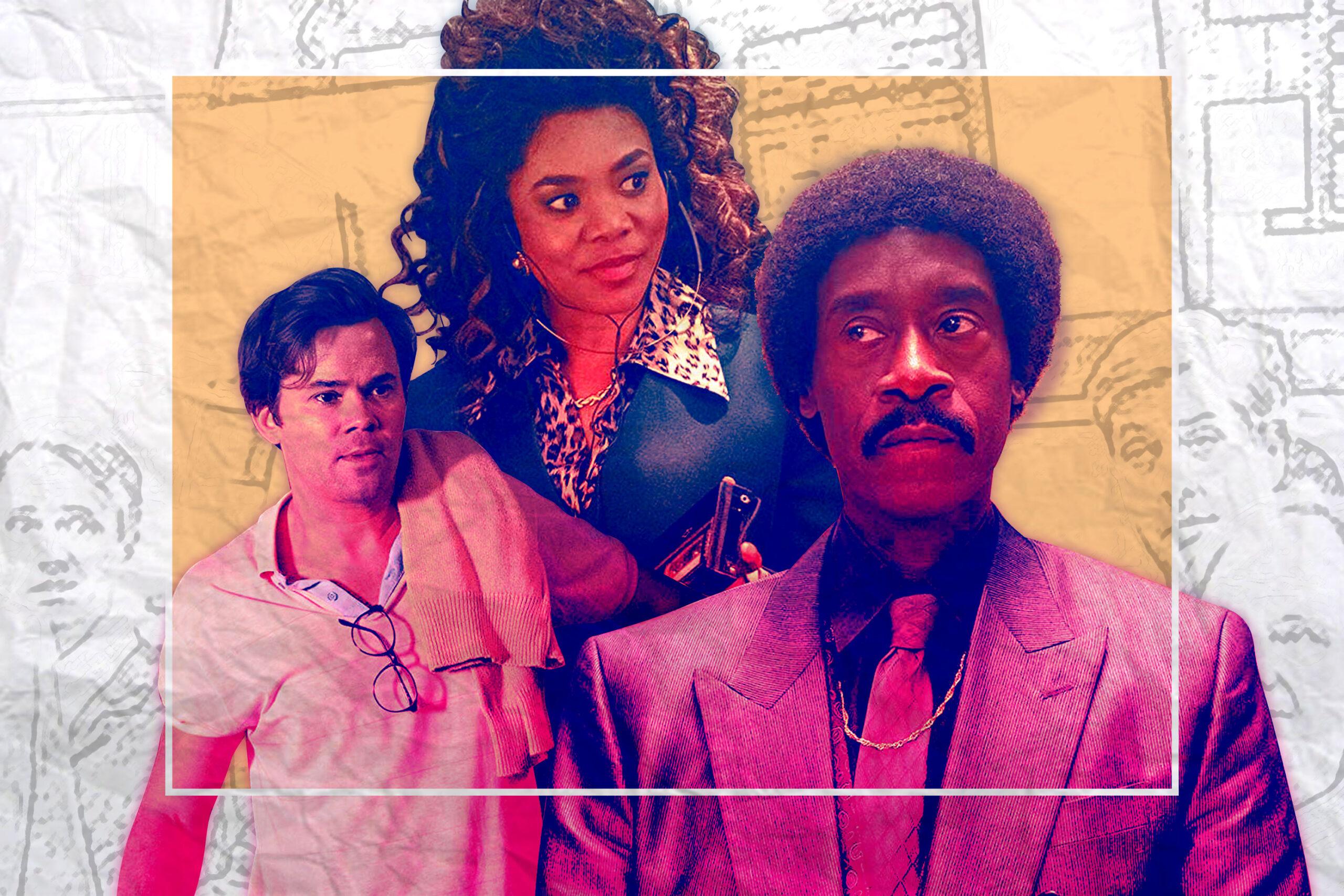
Black Monday may take its name, and central plot mechanism, from a real-world event, but it isn’t set in anything remotely like the real world. Showtime’s latest half-hour purports to track the build-up to the titular stock market crash in October 1987. In truth, however, Black Monday takes place in the 1980s as imagined, and parodied, from the 2010s. The cocaine comes in clouds. The frozen yogurt is the country’s best. The cellphones are “as small as toasters.” Where Billions, the network’s other high-finance show, aims to capture Wall Street as it actually is, Black Monday wants to channel Wall Street with the satirical gift of hindsight.
Cocreated by Happy Endings’ David Caspe and Champaign ILL’s Jordan Cahan, Black Monday is also something increasingly rare on premium cable these days: a straight-up comedy. For the most part, the realization that a lower run time doesn’t automatically equal lower stakes or ambition has been one of post-prestige television’s most rewarding developments, giving rise to such genre experiments as Atlanta, Transparent, Enlightened, and The Girlfriend Experience. Half-hour shows don’t have to be comedies, and as a rule, the more creative leeway, the better. But somewhere along the line, the premium sitcom became something of an endangered species. For every Silicon Valley or Veep, there’s a High Maintenance, Room 104, Baskets, Better Things, Barry, Forever, and on Showtime in particular, SMILF or Kidding—all shows that can be funny, but for whom humor isn’t exactly a primary goal. (Netflix has plenty of traditional comedies, though its omnibus approach makes the streaming service a difficult comparison with more targeted outlets like HBO, Showtime, or even Amazon.)
Personally, I’ve become so unused to conventional jokes on tonier networks that it took me the better part of Black Monday’s pilot to realize jokes were the point. Caspe and Cahan’s answer to Gordon Gekko is Maurice “Mo” Monroe (Don Cheadle), master of the universe, rags-to-riches success story, and proprietor of the nonsensically named Jammer Group. Mo’s employees include Dawn Darcy (Regina Hall), his ex and trusted deputy whose coping strategy for workplace misogyny is to out-boy the boys’ club, and Blair Pfaff (Andrew Rannells), a number-crunching beta male whom Mo recruits, unbeknownst to his new hire, as a bit of corporate subterfuge. (Blair is engaged to an heiress whose family company Mo wants to take over.)
Despite such a strong central trio, however, it’s the supporting players who indicate the show’s true character: Ken Marino, as fictional “Lehman Brothers” Lenny and Larry. Paul Scheer, as an overcompensating trader with a toupee to match. Casey Wilson, as Blair’s domineering fiancée. It’s a roster one might expect of a studio comedy, if Hollywood were still in the business of making those. Such bit parts, many of them mouthpieces for the writers’ retroactive jabs at Oliver Stone, INXS, or Top Gun, are admittedly working at a lower level of difficulty than the core cast. Black Monday tends to falter when it strains to make its protagonists the object of our sympathy as well as our scorn. In this effort, Hall, coming off a justifiably adored performance in understated indie Support the Girls, fares the best by a mile. Partly, this is due to Hall’s own charisma; partly, it’s because Dawn—whose liberal parents disapprove of her materialism and male colleagues refuse to recognize her worth—is grounded in something resembling an understandable conflict.
Black Monday is not particularly interested in the mechanics of money; when Blair is afforded the opportunity to demonstrate his prowess, Rannells all but mashes a keyboard while dollar amounts fluctuate on a screen. Rather, Caspe and Cahan want to sink their teeth into the sweet spot where money and exaggerated period detail collide. Mo glides around town in a Lamborghini limo with “none of the speed of a Lamborghini and none of the comfort of a limousine.” Dawn multitasks her morning aerobics tape and her wake-up cigarette break. Blair and his betrothed have a tense confrontation over … a trash compactor. (“What am I supposed to do—compact my own trash?”) The references occasionally stumble into “get it?” territory, as when Mo alludes to doing coke with the mayor of D.C. and a bystander feels the need to clarify he’s talking about Marion Barry. Yet the upside to joke density is that Black Monday can afford some misses as it figures out the line between winking and obvious, buffoonish and crass.
Black Monday’s pilot episode is codirected by Seth Rogen and Evan Goldberg, who also serve as executive producers. With a postapocalyptic opening (before a flashback, a couple of punks are seen spray-painting “YUPPIES LOST” onto the NYSE) and a dizzying introduction to the trading floor, it’s the flashiest by far of the three episodes I’ve seen. Nevertheless, Black Monday shows a lavish commitment to vintage cars, acid-wash jeans, and what certainly seems like an exorbitant hairspray budget. The result is a format—conventional comedy—increasingly left to broadcast networks, translated to the scale and sensibility of a designer label. Rogen and Goldberg’s aesthetic contribution hints that laughs deserve, and benefit from, the same investment of resources as a weightier kind of period piece.
When Black Monday stays in its comfort zone, it’s something genuinely refreshing to see from a prestige provider. Caspe and Cahan don’t aim to use humor as a brutally incisive commentary on America’s ruling class, nor a searing deconstruction of a deeply flawed central figure. They’re here to have fun, and often do so with enough panache that the feeling is contagious. When you don’t know there’s a crash coming, it’s easy to feel like life’s a party.